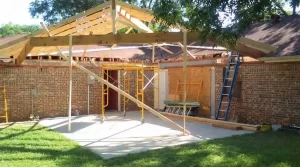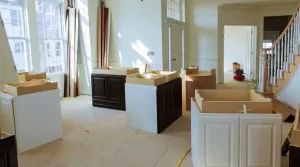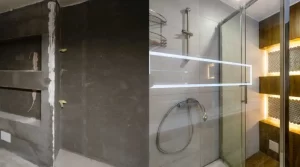It’s great that you’ve chosen the time is now to start building that house addition. Because there are so many different types of extensions, they are the best way to customize your home and add the extra space you need. Making the decision to construct is the first step, but many homeowners find it difficult. You want to add a room, but you’ve heard harrowing tales about builders who start a job, ignore the budget and timeline, and then stop working on it in the midst. You want a beautiful, functional addition to your home, not a headache that will take forever and cost a fortune! So how do you avoid obstacles and delays while adding on to your home?
How to Avoid Delays and Disruptions During Home Additions
- Choose a qualified contractor. What kind of contractor is ideal? There are several things to take into account when choosing a general contractor for your project. Have they performed the kind of work you are hoping to have done before? For instance, if you’re adding on to your home, you shouldn’t hire a roofing contractor. Do you believe them? Read online evaluations about the contractors and contact references to learn more about them. Do they have the required credentials? Do you require a qualified professional to carry out the work you’re doing? If you do your homework in advance, finding a skilled professional—not an amateur—will be simpler.
- Plan (again, again, again, again, and again). A lack of appropriate preparation is to blame for the bulk of additional delays and interruptions. Verify that your contractor thoroughly understands your needs and has described them all in your contract before you begin any expansion projects to prevent difficulties. But remember that planning involves both you and the contractor. Participate actively in the planning process to make sure you make your requests as specific as possible from the outset. There will be a delay if you have new ideas midway through the project.
- Obtain the required permits. After your contractor destroys your wall, a city authority shows up. If you and your contractor failed to adhere to the regional building codes and acquire the necessary permissions, your project will be put on hold. But this lag can be easily avoided! Your contractor should be familiar with building codes; if not, start over and find another one. When your contractor has a thorough understanding of your project, they should be able to help you secure the necessary permits. No contractor should begin work without the necessary permits.
- Clarify the project’s schedule. Your contractor needs to know when the work can be completed after you and both of you have a plan in place. Your contractor needs to provide you with a rough schedule of when each part of the addition will be finished. Considering that this is not a specific timeframe, expect delays. Even with meticulous preparation, delays can still happen because of unanticipated weather (like spring snowstorms! ), holdups at the permit office, or while waiting for the delivery of the required components. But if you have a general idea of the timeline, you can hold your contractor accountable and avoid a drawn-out job!
Moving forward
A home addition might enable you to build the house of your dreams, despite the fact that it is a substantial commitment. Even while you can’t plan for everything, being ready can help you avoid unforeseen delays and interruptions so your project gets finished on time (and on a budget). The best option is to work with a trustworthy general contracting company. Working with someone who has experience on projects comparable to yours may give you more confidence. KBJ Bayonne Contracting Services has experience constructing additions (on time and under budget), and we would be delighted to collaborate with you to design the addition of your dreams. If you’re ready to start planning your expansion, get your free consultation right away.







